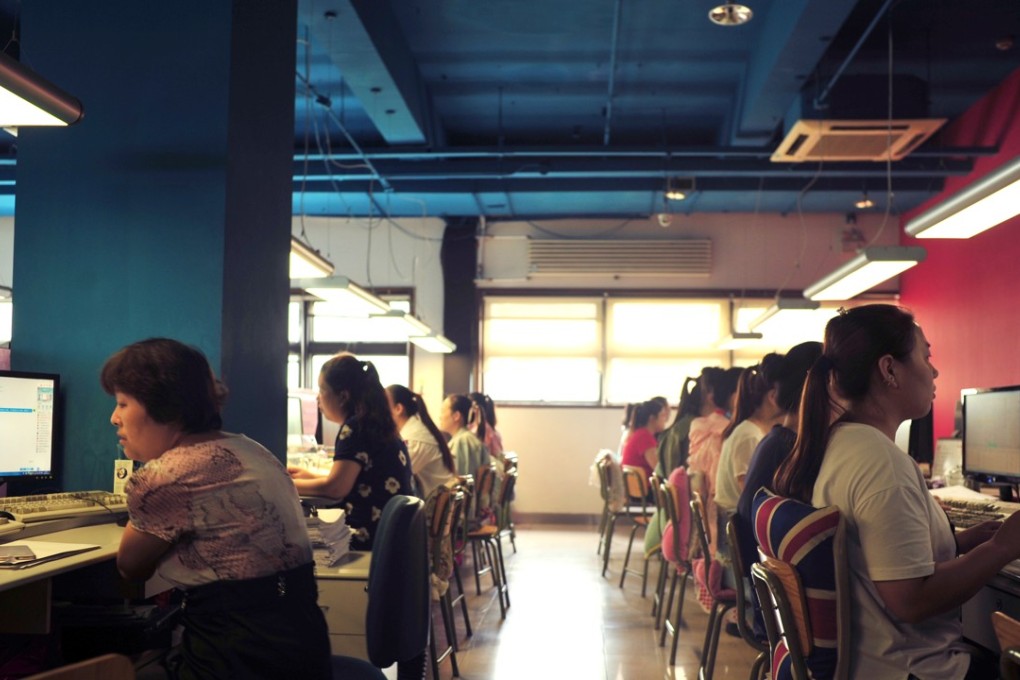AI promises jobs revolution but first it needs old-fashioned manual labour – from China
Basic Finder is among the labelling companies thriving amid the data boom, with clients including US university UC Berkeley and Chinese AI leaders SenseTime and iFlyTek

Rows of mostly young women sit elbow-to-elbow in cheap chairs at this five-storey, Soviet-style factory building on the outskirts of Beijing, staring at their computer screens. Some bring their own cushions for back support. They spend their shifts viewing images from everyday life and “tagging” them with dots, lines and descriptions.
Welcome to ground level for artificial intelligence, the arrival of which has been dubbed the fourth industrial revolution with the promise of freeing humans up from repetitive, mind-numbing work. But before this utopian promise can be fulfilled, a lot of monotonous work still has to be performed – by humans – and increasingly by humans in China.
The conditions at Basic Finder’s “data tagging” factory are a world apart from Big Tech’s gleaming campuses in Silicon Valley, or even in China’s tech hubs in Beijing and Shenzhen.
For a start, it’s minimum-wage work. There are no staff canteens offering artisanal pizzas or recreation facilities such as indoor climbing walls or air-conditioned basketball courts. No sleep pods. No pool tables either. Yet the work done here is vital if AI is to deliver on its promise.
Workers on a break have to gravitate to plastic tables and chairs bolted to the floor. Thermos flasks line the ledge above a washing sink. Just like the early days of Foxconn’s iPhone factories, which came to symbolise China’s role at the bottom end of the value chain of global manufacturing, the AI revolution has created a new wave of low-end, labour-intensive jobs that China is increasingly soaking up.
Such “tagging” factories, staffed by minimum-wage workers – some paid as little as 10 yuan (US$1.47) per hour – are the new face of global outsourcing. And much as electronics and clothes before, China is quickly becoming the global workshop for AI. There are also signs that the data-labelling industry is moving inland to areas such as Shandong, Henan, Hebei and Shanxi, where labour costs are lower.